Filter by
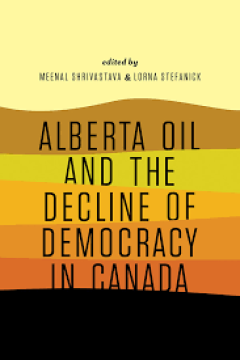
Alberta Oil and the Decline of Democracy in Canada
In probing the impact of Alberta’s powerful oil lobby on the health of democracy in the province, contributors to the volume engage with an ongoing discussion of the erosion of political liberalism in the West. In addition to examining energy policy and issues of government accountability in Alberta, they explore the ramifications of oil dependence in areas such as Aboriginal rights, environm…
- Edition
- -
- ISBN/ISSN
- 9781771990301
- Collation
- -
- Series Title
- -
- Call Number
- -
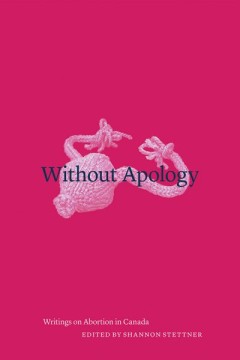
Without Apology Writings on Abortion in Canada
With contributions by Aalya Ahmad, Tracey L. Anderson, Jane Cawthorne, Peggy Cooke, Shannon Dea, Carolyn Egan, Linda Gardner, Laura Gillespie, Sterling Haynes, E.K. Hornbeck, Clarissa Hurley, “Dr. James”, H. Bindy K. Kang, Kristen, Natalie Lochwin, Mackenzie, Colleen MacQuarrie, Ruth Miller, Judith Mintz, Erin Mullan, Jen Rinaldi, Sadie Roberts, Martha Solomon, Shannon Stettner, Karen Stote…
- Edition
- -
- ISBN/ISSN
- 9781771991599.01
- Collation
- -
- Series Title
- -
- Call Number
- 366 pages
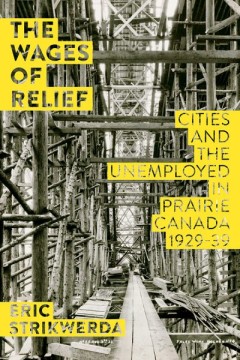
The Wages of Relief Cities and the Unemployed in Prairie Canada, 1929–39
Setting municipal relief administrations of the 1930s within a wider literature on welfare and urban poor relief, Strikwerda highlights the legacy on which relief policymakers relied in determining policy directions, as well as the experiences of the individuals and families who depended on relief for their survival. Focusing on three prairie cities—Edmonton, Saskatoon, and Winnipeg—Strikwe…
- Edition
- -
- ISBN/ISSN
- 978-1-927356-05-0
- Collation
- -
- Series Title
- Working Canadians: Books from the CCLH
- Call Number
- 333 pages
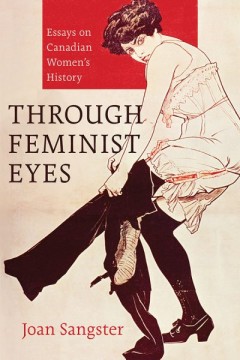
Through Feminist Eyes Essays on Canadian Women’s History
Approaching her subject matter from an array of interpretive frameworks that engage questions of gender, class, colonialism, politics, and labour, Sangster explores the lived experience of women in a variety of specific historical settings. In so doing, she sheds new light on issues that have sparked much debate among feminist historians and offers a thoughtful overview of the evolution of wome…
- Edition
- -
- ISBN/ISSN
- 978-1-926836-18-8
- Collation
- -
- Series Title
- -
- Call Number
- 440 pages
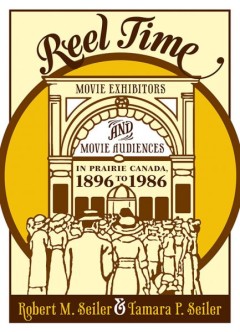
Reel Time Movie Exhibitors and Movie Audiences in Prairie Canada, 1896 to 1986
As marketing efforts, the lavish interiors of the movie palace and the romantic view of the local movie theatre concealed a competitive environment in which producers, exhibitors, and distributors tried to monopolize the industry and drive their rivals out of business. The pitched battles and power struggles between national movie theatre chains took place at the same time that movie exhibitors…
- Edition
- -
- ISBN/ISSN
- 978-1-926836-99-7
- Collation
- -
- Series Title
- -
- Call Number
- 397 pages
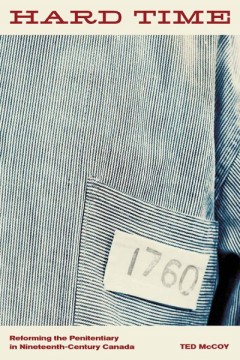
Hard Time Reforming the Penitentiary in Nineteenth-Century Canada
Tracing the rise and evolution of Canadian penitentiaries in the nineteenth century, Hard Time examines the concepts of criminality and rehabilitation, the role of labour in penal regimes, and the problem of violence. Linking the lives of prisoners to the political economy and to movements for social change, McCoy depicts a history of oppression in which prisoners paid dearly for the reciprocal…
- Edition
- -
- ISBN/ISSN
- 978-1-926836-96-6
- Collation
- -
- Series Title
- -
- Call Number
- 349 pages
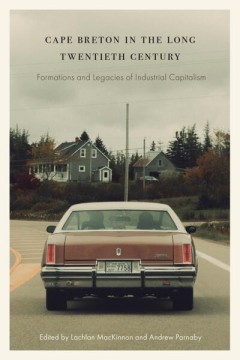
Cape Breton in the Long Twentieth Century Formations and Legacies of Industr…
The emergence, dominance, and alarmingly rapid retreat of modernist industrial capitalism on Cape Breton Island during the “long twentieth century” offers a particularly captivating window on the lasting and varied effects of deindustrialization. Now, at the tail end of the industrial moment in North American history, the story of Cape Breton Island presents an opportunity to reflect on how…
- Edition
- -
- ISBN/ISSN
- -
- Collation
- -
- Series Title
- -
- Call Number
- 6 x 9, 500 pages

Legal Literacy An Introduction to Legal Studies
While Legal Literacy is an introductory text, it also challenges students to consider critically the system they are studying. Touching on significant socio-legal issues such as access to justice, legal jargon, and plain language, Zariski critiques common legal traditions and practices, and analyzes what it means “to think like a lawyer.” As such, the text provides a sound basis for those w…
- Edition
- -
- ISBN/ISSN
- 9781927356449.01
- Collation
- -
- Series Title
- OPEL (Open Paths to Enriched Learning)
- Call Number
- -

Hard Time Reforming the Penitentiary in Nineteenth-Century Canada
Tracing the rise and evolution of Canadian penitentiaries in the nineteenth century, Hard Time examines the concepts of criminality and rehabilitation, the role of labour in penal regimes, and the problem of violence. Linking the lives of prisoners to the political economy and to movements for social change, McCoy depicts a history of oppression in which prisoners paid dearly for the reciprocal…
- Edition
- -
- ISBN/ISSN
- 978-1-926836-96-6
- Collation
- -
- Series Title
- -
- Call Number
- -
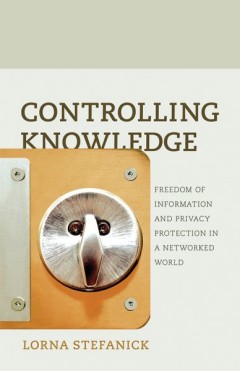
Controlling Knowledge Freedom of Information and Privacy Protection in a Net…
Digital communications technology has immeasurably enhanced our capacity to store, retrieve, and exchange information. But who controls our access to information, and who decides what others have a right to know about us? In Controlling Knowledge, author Lorna Stefanick offers a thought-provoking and user-friendly overview of the regulatory regime that currently governs freedom of information a…
- Edition
- -
- ISBN/ISSN
- 978-1-926836-26-3
- Collation
- -
- Series Title
- -
- Call Number
- -
 Computer Science, Information & General Works
Computer Science, Information & General Works  Philosophy & Psychology
Philosophy & Psychology  Religion
Religion  Social Sciences
Social Sciences  Language
Language  Pure Science
Pure Science  Applied Sciences
Applied Sciences  Art & Recreation
Art & Recreation  Literature
Literature  History & Geography
History & Geography